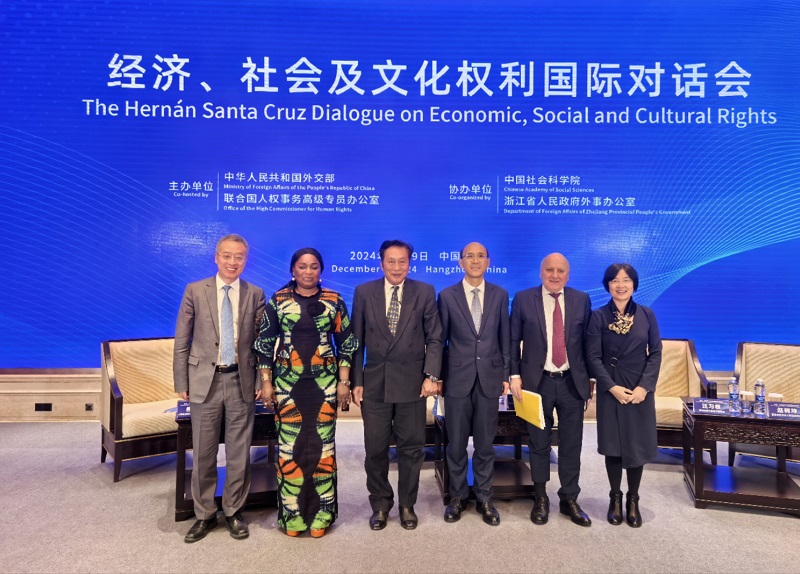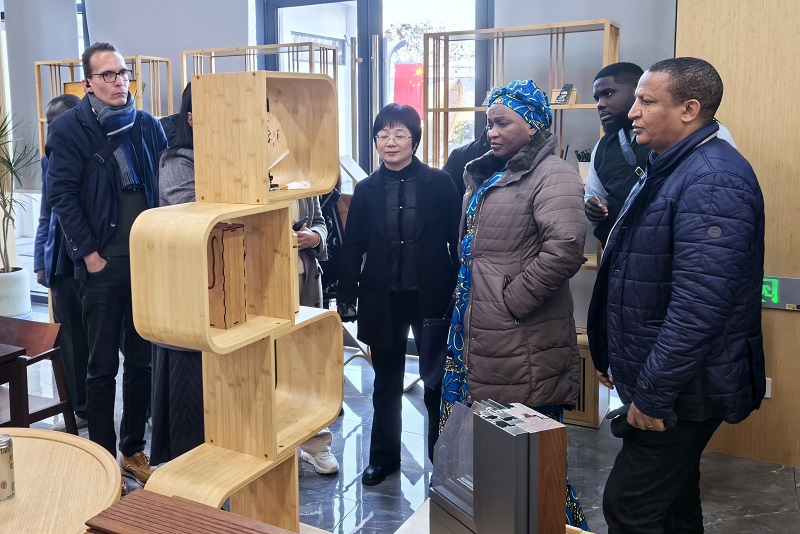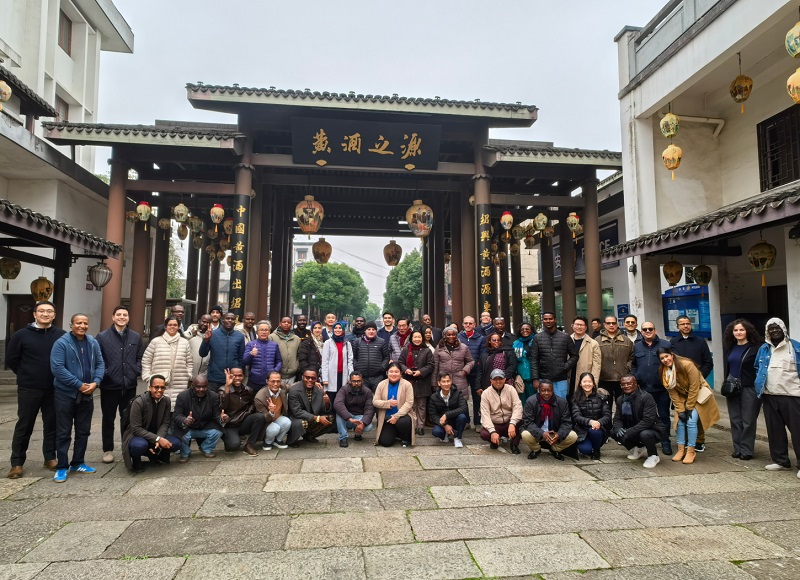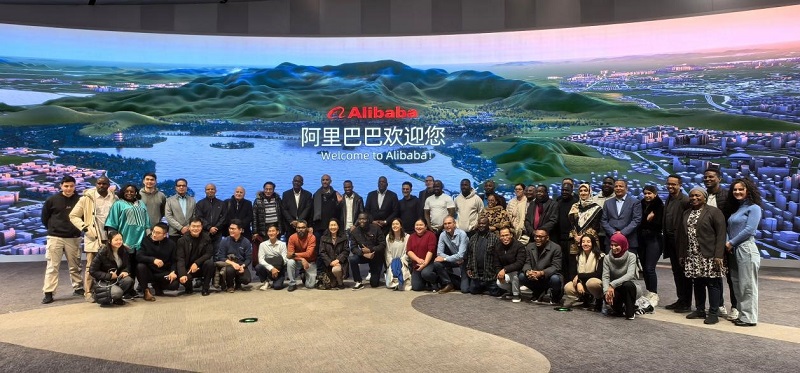Representatives from nearly 50 countries and regions share their thoughts on how to correct development imbalances and protect people’s rights in all areas.

Panelists at the Hernán Santa Cruz Dialogue on Economic, Social and Cultural Rights in Hangzhou, Zhejiang Province in east China, on December 9, 2024.
Yucun, a small village in Zhejiang Province, is known for its beautiful scenery, with white egrets flying in a blue sky and mandarin fish jumping out of the clear water of its lakes and rivers. The houses are equally picturesque, dainty three-storied villas with white walls and black tiles.
It is also a prosperous village. “The village’s achievement in combining economic growth with environment protection is an essential part of the green and sustainable development that the Communist Party of China (CPC) has been emphasizing in recent years,” Thiphasone Sengsourinha, a senior official from Laos, told China Today.
Thiphasone was in Zhejiang to attend the Hernán Santa Cruz Dialogue on Economic, Social and Cultural Rights, along with other senior officials from nearly 50 countries and regions and the UN. The one-week program started in Beijing and ended in Zhejiang’s capital city Hangzhou, with trips to several cities and towns in Zhejiang, where the participants learned about the local government’s people-centered policies.
Thiphasone, deputy director general at the Department of Treaty and Law in Laos’ Foreign Affairs Ministry, is no stranger to Zhejiang. As a visiting scholar at Zhejiang University in 2017, he has been to many places in the province and this trip was like a homecoming, during which he marveled at its remarkable changes.
Yucun and tens of thousands of other villages across China owe their green development to the concept popularized by President Xi Jinping in 2005, when he was secretary of the CPC’s Zhejiang Provincial Committee, that “clear waters and lush mountains are invaluable assets.” The concept became a direction for high-quality growth through the development of eco-friendly industries.

Senior officials from nearly 50 countries and regions as well as UN experts visit the bamboo product trading center in Anji, a county in Zhejiang, on December 8, 2024.
Where Gold Grows on Trees
Anji is a prime example of that. This county in Zhejiang is known as the hometown of the bamboo in China and the local economy revolves round making all kinds of bamboo products. “Anji has grown its bamboo industry with the eco-friendly and renewable bamboo to make disposable tableware and hotel supplies,” said Seraphine Kando, an expert in human rights and rule of law at the African Union, who was deeply impressed by Anji’s expertise in growing this green industry. “In this innovative way, Anji has leveraged the valuable attributes of bamboo to replace plastic – truly turning bamboo into something as valuable as gold.”
The African Union has its own vision of building an integrated, prosperous and peaceful Africa. Its goal is to tackle climate change, reach economic equality and ensure people’s economic, social, and cultural rights (ESCRs), which include the right to adequate food, housing, education, health and social security. “We can draw on China’s development experience,” she said.
In Shaoxing, a historical and cultural water town, visitors watched how yellow rice wine, one of most famous varieties of Chinese liquors, was made from fermented rice. With a history of more than 2,500 years, the amber-colored, aromatic yellow wine is still produced by locals in the traditional way, which became an officially recognized national intangible cultural heritage in 2006.
The town boasts a museum which displays relics confirming the existence of a legendary state millennia ago – the Yue State, known for its expertise in using boats as well as the sword.
It struck a chord in Tinsae Seifu Alemayehu, a division director in Ethiopia’s Ministry of Justice. “Ethiopia also boasts a long history,” he said. “People may have heard about Lucy, (the name given to the female hominin skeleton found in Ethiopia and estimated to be about 3.2 million years old) but seldom know the history of our country. We should learn from China to preserve our history and culture. It is important for building cultural confidence.”
The week-long program, he told China Today, has given him an understanding of China’s governance wisdom, its people-centered approaches, and its preservation of tangible and intangible cultural heritage.
“China and Ethiopia have many similarities,” he said, pointing out that both countries have various ethnic groups and diverse cultures and both are proud of their diverse cultures. Ethiopia has more than 80 tribes, some with a population of millions and some with only a few hundred people. Regardless of the number, each tribe contributes greatly to the country’s economic growth, traditional practices, and cultural heritage. “Seeking harmony in differences can be a challenge for both of us. But it is the cultural identity that makes us who we are,” he said.

The visitors at the yellow rice wine town in Shaoxing in Zhejiang, December 7, 2024.
Putting People First
Besides exchanging experiences and practices on economic, social, cultural and environmental rights, the event also discussed the right to development, and the 2030 Agenda and the Sustainable Development Goals (SDGs). It concluded with a dialogue on the last day, organized by the Ministry of Foreign Affairs of China and the Office of the UN High Commissioner for Human Rights.
Volker Türk, the UN High Commissioner for Human Rights, talked by video about how the pursuit of economic growth at all costs has contributed to the denial of human rights and the destruction of the environment. Current economic systems must undergo a profound transformation to ensure that all decisions deliver on all human rights, economic, social, cultural, civil and political rights, the right to development, and the right to a clean, healthy and sustainable environment, he stressed.
Guaranteeing the right to meaningful participation is the key to the full implementation of economic, social and cultural rights and underpins the right to development. This means that participation should be inclusive and sensitive, so that economic decisions take into account their impact on the most marginalized, he added.
Wang Yi, China’s Foreign Minister, sent a message echoing Türk. It said ensuring equal enjoyment of the economic, social and cultural rights by all is an important goal for the realization of all human rights. Wang, also a member of the Political Bureau of the CPC Central Committee, said China is committed to putting people first and has found a path of human rights development that is in line with the trend of the times and suits its national conditions. Historic achievements have been made in China's human rights cause, and the protection of ESCRs has reached a new height, he added.
The third plenary session of the 20th CPC Central Committee, held in July 2024, drew up a blueprint for deepening reform to advance Chinese modernization. The blueprint will provide conditions for the equal enjoyment of a higher level of ESCRs in China, Wang said.
The post-COVID-19 Scenario
In the context of the devastating socio-economic consequences of the COVID-19 pandemic, which have been exacerbated by the ongoing food, energy, and geopolitical crises, the panelists said the imbalance in development interests between countries and the negative impact of debt crises, unilateralism, and geopolitics should be addressed. New types of international cooperation are needed – for poverty reduction, ensuring food security, improving digital governance, addressing climate change and much more. International financial institutions should be reformed to address development inequality within and between countries, and true multilateralism should be practiced. China’s proposal of building a community with a shared future for all would promote greater unity in the international community and help jointly address global challenges.
Underdeveloped countries need China’s experience, Thiphasone said. In addition, collaboration across the Global South is essential to reach the SDGs.

At Alibaba’s headquarters in Hangzhou, December 6, 2024. Photos by Zhou Lin